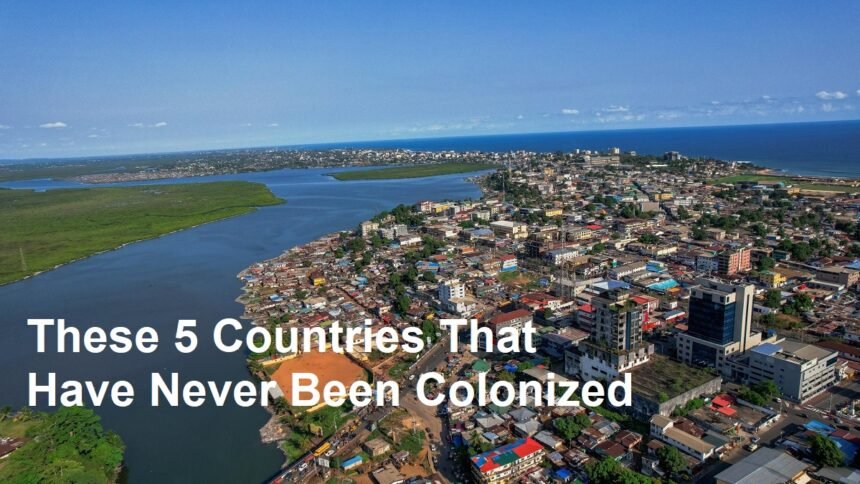Introducing
Throughout history, many nations have experienced colonization by foreign powers, shaping their cultures, borders, and political systems. However, some countries have managed to maintain their independence and sovereignty despite the waves of imperial expansion. These nations stand out as unique examples of resilience and national pride, having never been formally colonized by outside powers. Here are five such countries that have never been colonized.
1. Japan
Japan’s history of maintaining independence is well-known. Throughout the centuries, Japan successfully resisted colonization and foreign domination, especially during the period of overseas imperialism in the 19th and early 20th centuries. Unlike many Asian nations, Japan’s strategic military buildup, economic strength, and centralized government allowed it to keep its sovereignty.
The Meiji Restoration in 1868 marked the start of rapid modernization, which further strengthened Japan’s ability to defend itself against Western powers. Although Japan faced occupation during World War II, it was not colonized in the traditional sense; rather, it was occupied post-war and subsequently regained full sovereignty. Today, Japan is a sovereign nation with a rich cultural heritage intact.
2. Thailand
Thailand, formerly known as Siam, is often celebrated as the only Southeast Asian country that was never colonized by Western powers. It survived through a combination of diplomatic skill, strategic geographical positioning, and modernization efforts.
In the 19th century, Thailand’s kings engaged in diplomatic negotiations and territorial concessions with Britain and France to preserve independence. They also modernized their legal and political systems to demonstrate sovereignty. As a result, Thailand was able to avoid outright colonization, unlike neighboring countries such as Vietnam, Laos, and Cambodia, which came under French control.
Today, Thailand remains one of Southeast Asia’s most prominent nations, with its independence a source of national pride.
3. Liberia
Founded in the early 19th century by freed African Americans and former slaves from the United States, Liberia is unique among African nations. It declared independence from colonial treaties with the United States in 1847, making it the first African republic to gain independence after Europeans colonized much of the continent.
While Liberia did experience internal conflicts and influence from foreign powers, especially during the 20th century, it was never formally colonized by a European nation. Its establishment as a settlement for freed slaves, combined with strategic diplomatic relations, helped protect its sovereignty. Today, Liberia continues to be an independent nation, although it faces various challenges.
4. Ethiopia
Often cited as Africa’s oldest independent country, Ethiopia has a rich history of resisting colonization. It is most famously known for defeating Italian invaders at the Battles of Adwa in 1896, which was a significant event that prevented Ethiopia from becoming a colony.
Though Italy occupied Ethiopia during the Second Italo-Ethiopian War (1935-1936), the country reclaimed its independence after World War II. Its deep cultural heritage and strong leadership played vital roles in maintaining sovereignty. Ethiopia’s resilience against colonization makes it a symbol of African independence.
5. Nepal
Nestled within the Himalayas, Nepal has long maintained its independence, largely due to its geographic isolation and strong national identity. Throughout history, various empires and neighboring powers tried to influence or invade Nepal, but its rugged terrain and fierce warrior traditions helped it resist conquest.
Although some treaties and treaties with British India affected Nepal’s sovereignty, it was never fully colonized or annexed. Nepal retained its monarchy until 2008 and continues to be an independent nation with a distinctive culture and political system.
Conclusion
These five countries—Japan, Thailand, Liberia, Ethiopia, and Nepal—stand as remarkable examples of nations that remained free from colonization or imperial domination. Their histories reflect resilience












